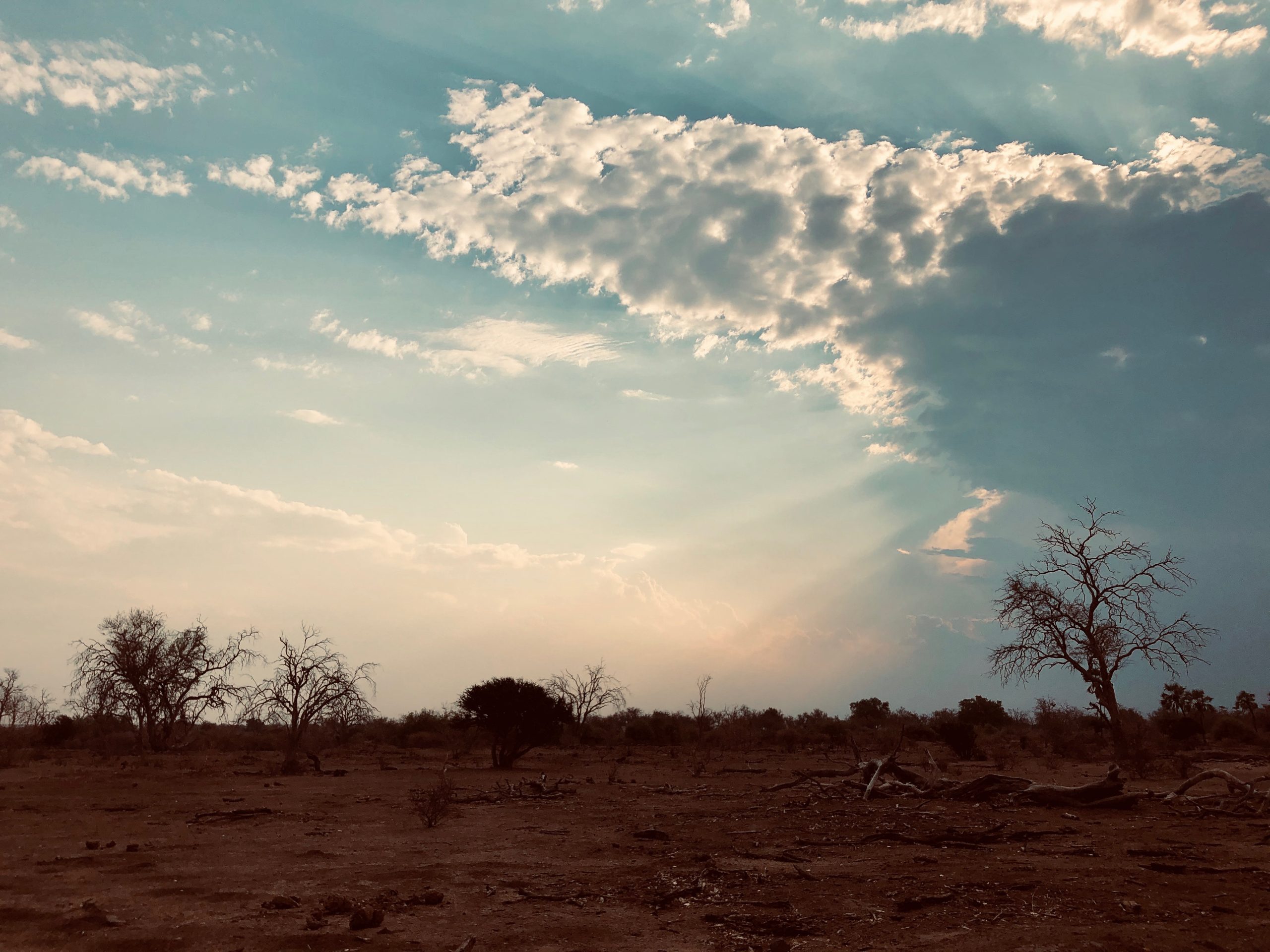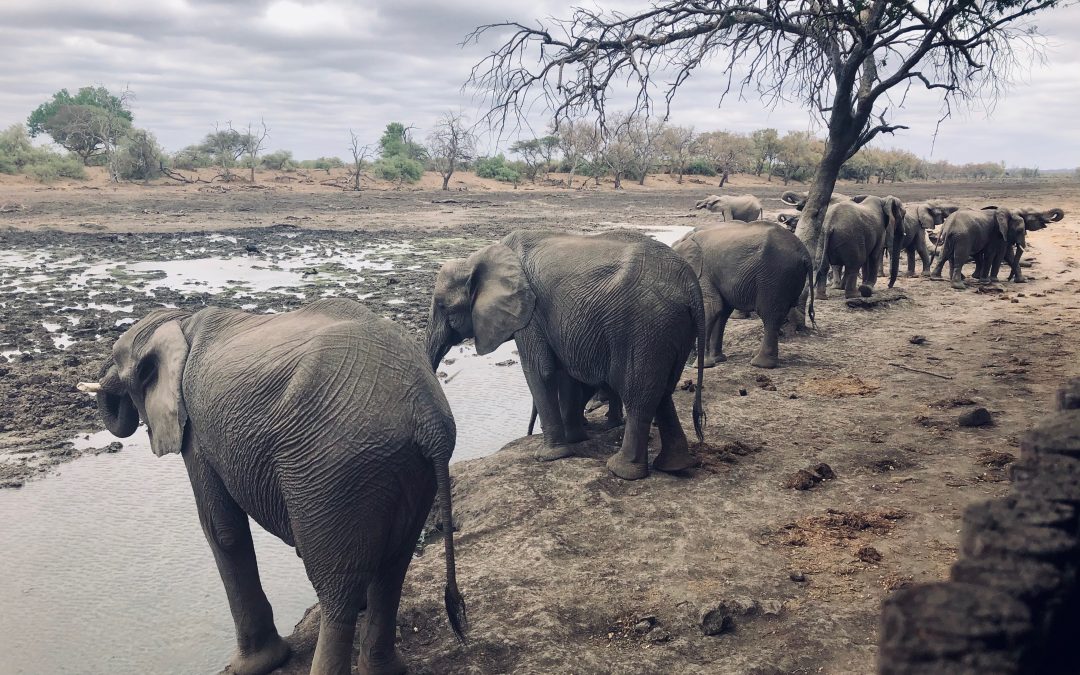The dampened stillness of the veld was punctuated only by the inquisitive sounds of a few Meve’s starlings. They are not commonly found in South Africa, but here in the Mapungubwe National Park they are ubiquitous. As we sit down on the creaky benches in the lonely bird hide overlooking a near-dry waterhole, we are disappointed with the lack of animal activity. Maybe not hot enough in the day yet, or maybe the drought’s toll has been high. Either way, nothing much to see here. We decide to just sit a while and be present – maybe something this way comes.
It had been an interesting weekend here in the very North of the country. We had made the immature decision to drive the 500 km for a quick weekend adventure to explore one of the lesser frequented parks. The Far North has always fascinated us – its wildness, its rugged beauty, its birdlife, its lack of crowds. Here the air seems hotter, the bush quieter and time slower.
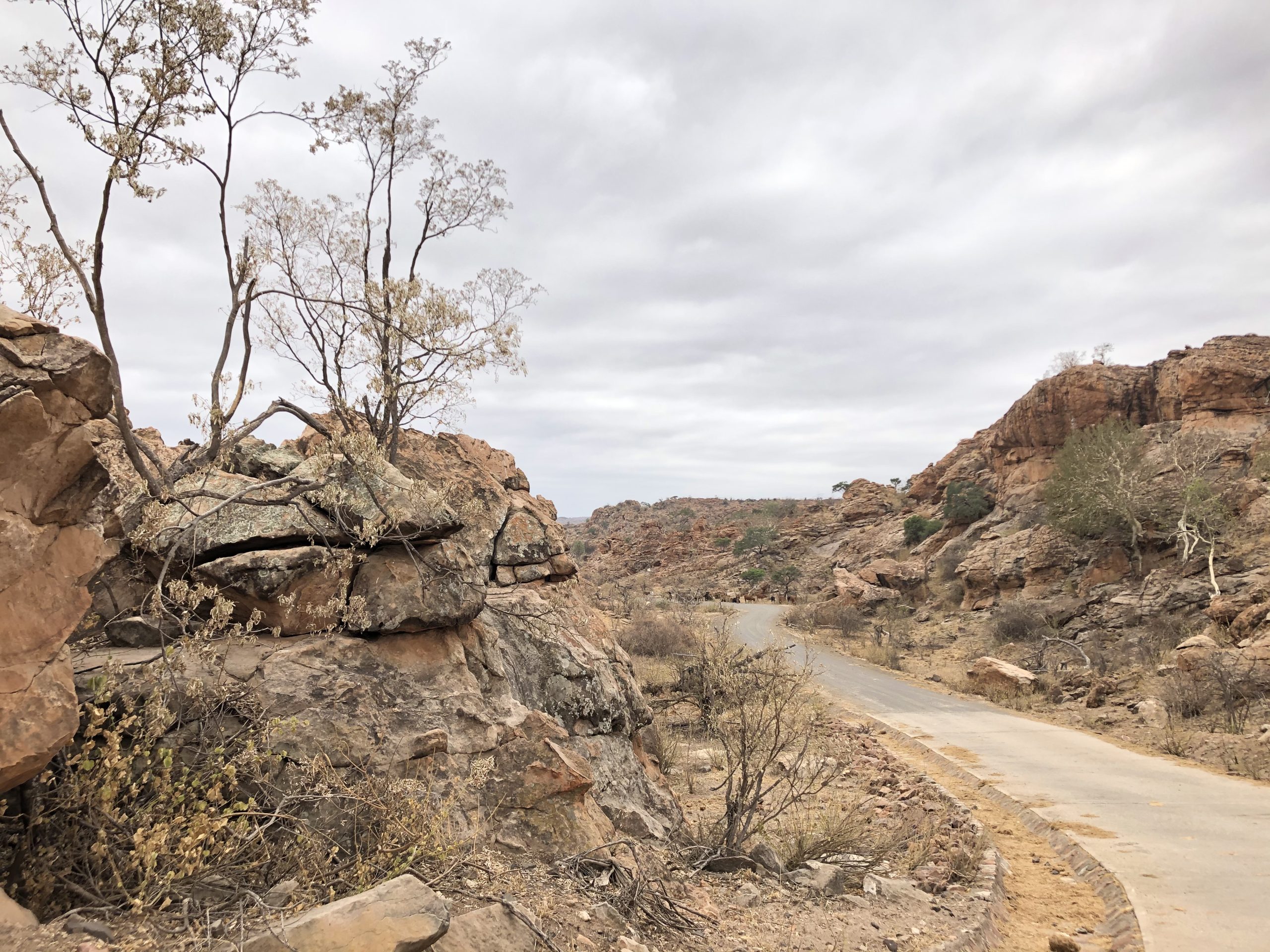
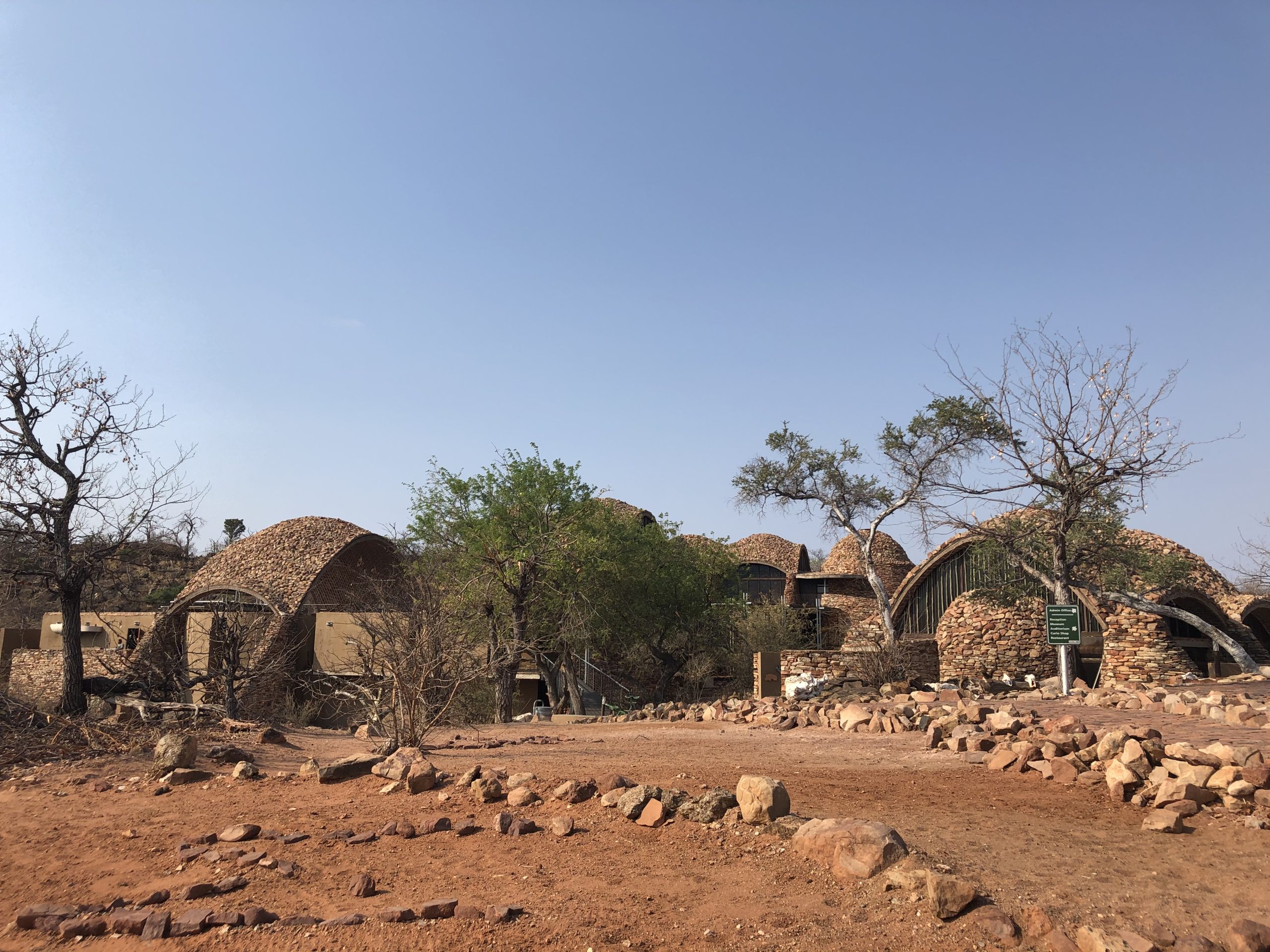
We came via Alldays, doing our best to avoid the road remnants whilst driving in the potholes. We did quite well, until we hit that one hole (there is always that one). Our arrival at the entrance gate was duly celebrated by the replacement of the tyre now fit for recycling. The reception office was complete with tired-looking personnel, an even more tired-looking air conditioning system and a dusty award certificate on the wall, still in its plastic wrapping. We were informed that we had to drive around the park to the campsite. Apparently, the road to the campsite had been washed away in the floods. This could have been Noah’s, as there had been a regional drought for some time now.
Booming with recently-inspired optimism, we precariously made our way to the campsite via our old potholed friends. Another damaged tyre would have rendered us dependent on assistance from the foreign overlanding tourists passing this way, and I am not sure if my ego would have survived that. Panting in the modest shade of a dry Mopani shrub, an overheated black-backed jackal finally welcomed us fittingly to Mapungubwe: Place of the Jackal.
Despite the slight hitches, we managed to explore a bit of the park that afternoon – a quiet, hot, dusty Friday afternoon. Arid bushveld landscapes. A lazy giant eagle owl. A lone gemsbok. White-browed sparrow-weavers. Leopard tracks. Colourful swallow-tailed bee-eaters. Curious giraffes. These were only some of the small wonders that slowly reminded us why we had come here in the first place.
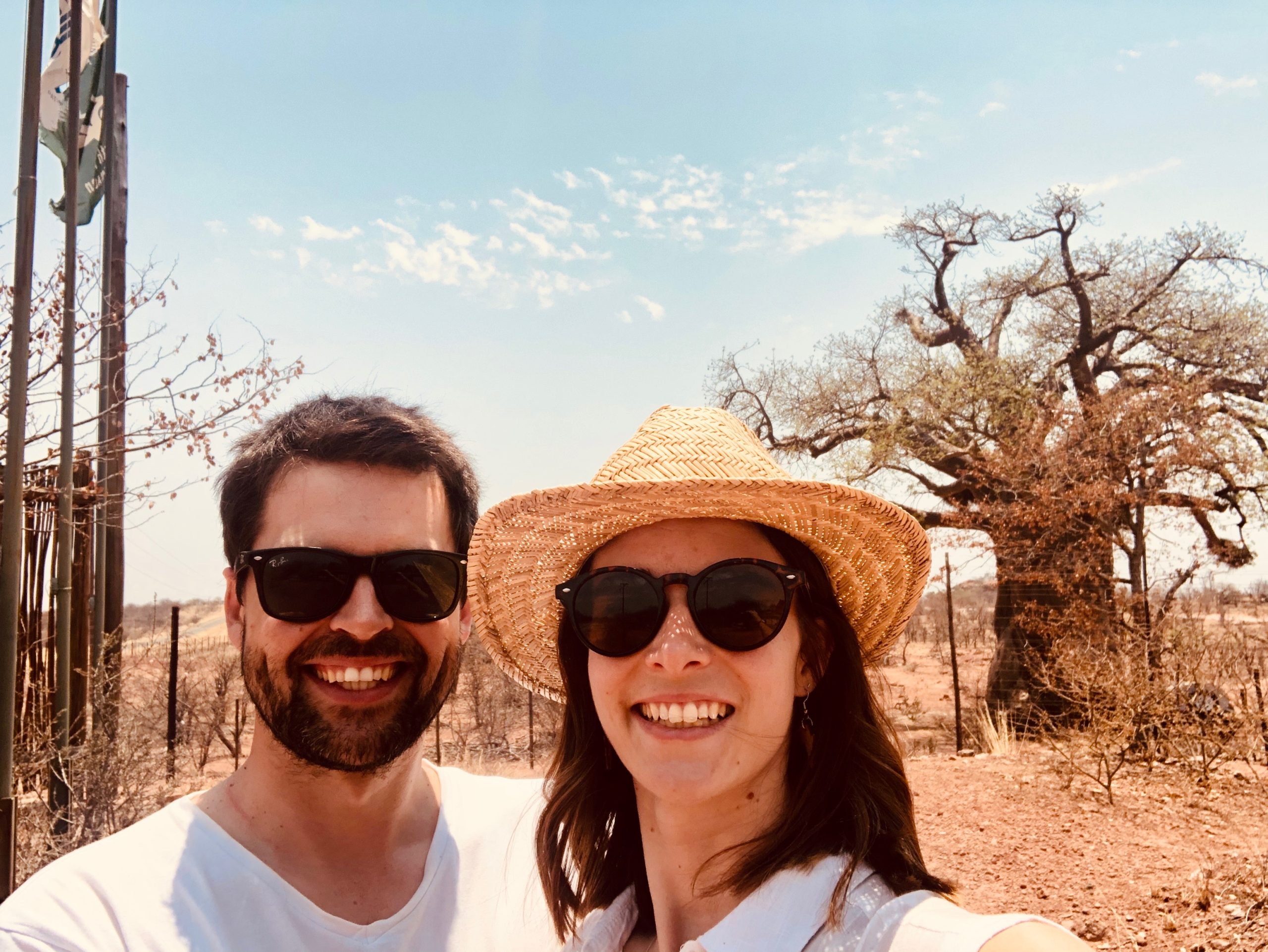
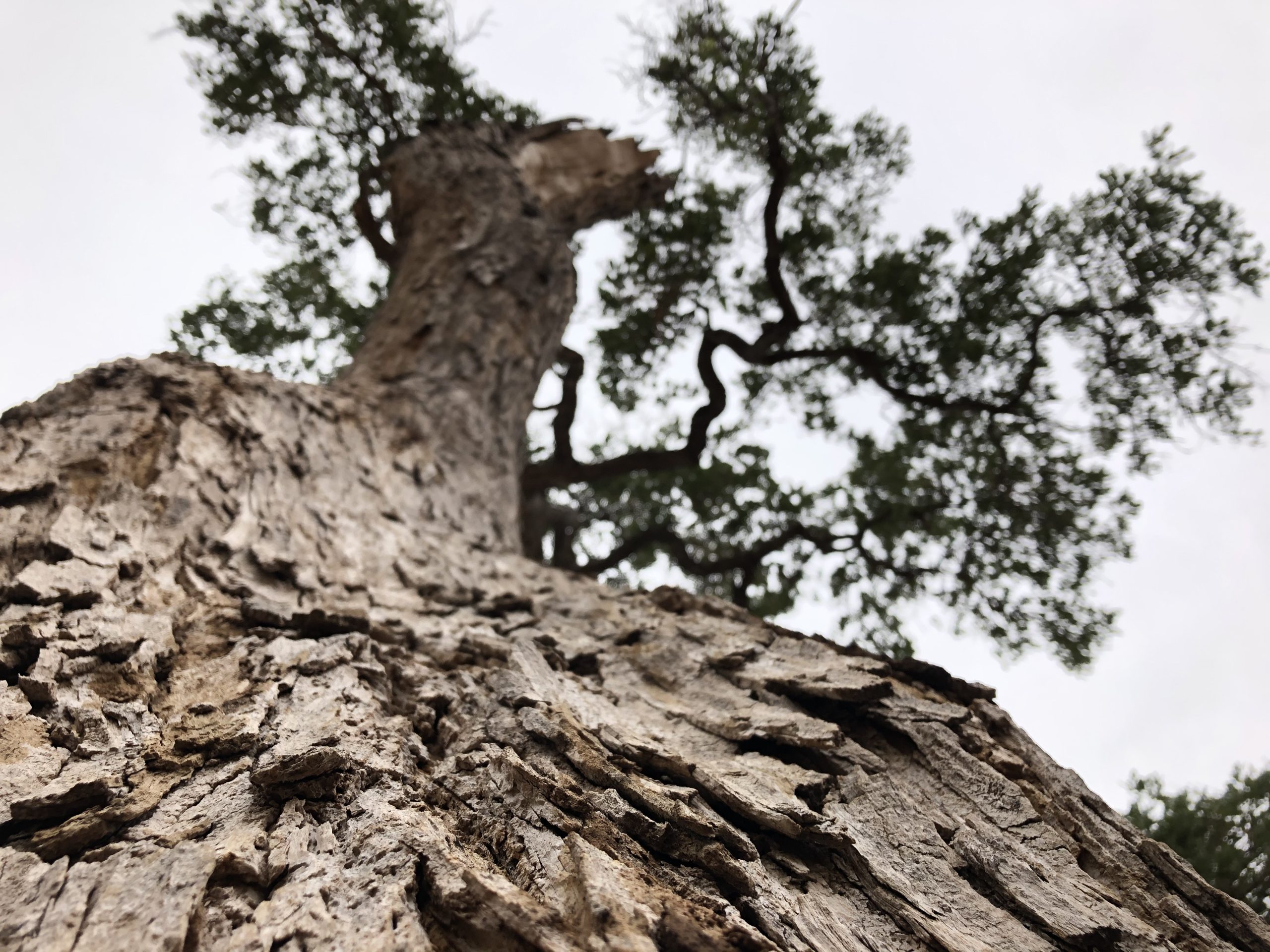
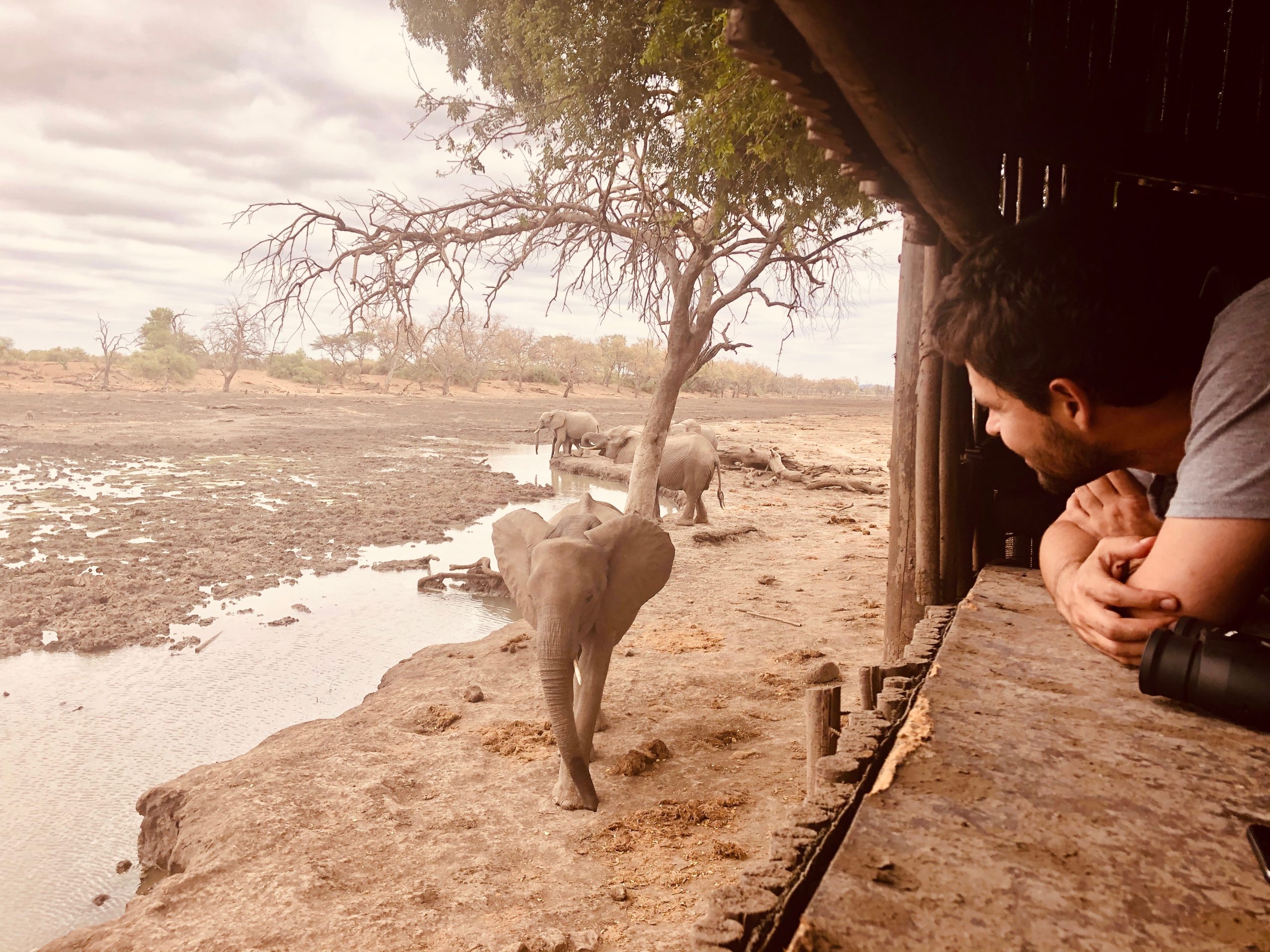
We camped under a giant and beautiful nyala tree – an icon of the Tuli area. ‘Careful for the monkeys!’ advised a fellow camper when we arrived. Good advice, it turned out. The chilled gin & tonics and crackling fire relaxed our nerves, while the experimental-yet-fantastic braai pie knocked us out completely. After sharing a night-cap coffee with a soft-spoken genet, we turned in and listened to the nightjars until it all became a haze of serenity.
The next day and a half passed too quickly for our liking. We searched for Pel’s fishing owl along a lush riverine forest drive (maybe next time). A treetop boardwalk gave us a unique vantage point to marvel at the forest edge and its creatures. The high view points over the confluence of the mighty Limpopo and Sashe rivers inspired awe, while the far-reaching horizons over Botswana and Zimbabwe seemed to beckon us closer (coming soon!). Our lunch was shared with pair of chirpy dassievoëls, and I readily provided entertainment to all by running a half-marathon in slops to subdue an unruly wind-caught paper plate. A late afternoon Crème Soda hit the right spot at the main interpretation centre, where we also enjoyed Peter Rich’s world-famous architectural integration of landscape, cultural heritage and imaginative design.
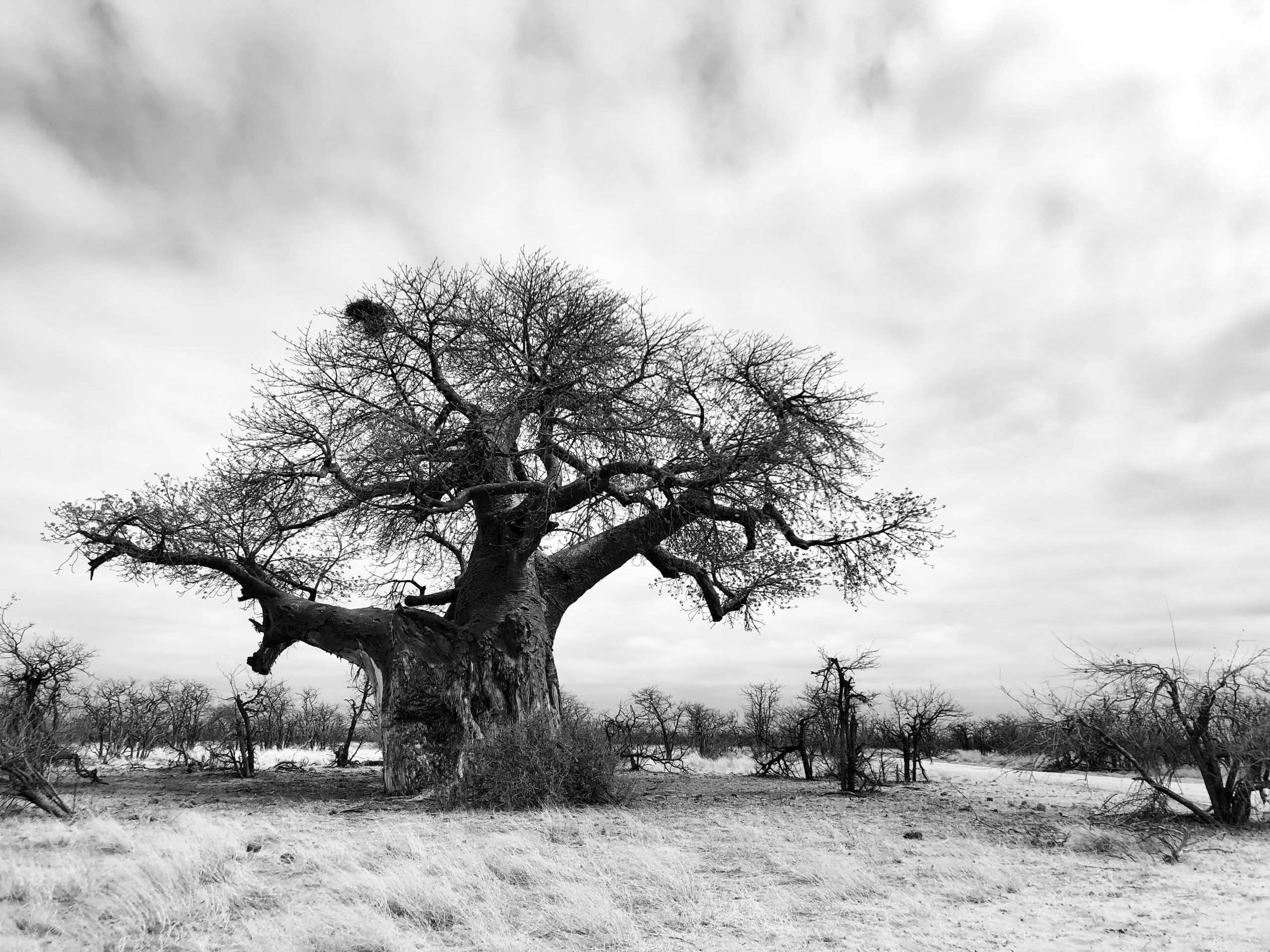
For the umpteenth time, I learned (the hard way) that there is value in proper fuel planning. Very enthusiastic about this seemingly new discovery, we set off to now also explore the road to Musina (note: it is just as filled with potholes). After filling up however, the detour proved to be worthwhile as we were treated with a sundowner drive filled with most magnificent baobab tree landscapes in this far-flung corner of land. Even the car’s warning lights disappeared. To celebrate, Simoné turned up the music and with a wide smile and her head peeking out the open window, I was reminded of how small blessings always matter.
The Sunday morning was a lazy one. I made a slow coffee with the camp bushbuck ewe watching to ensure a quality brew. A plethora of birds were more than interested in our breakfast leftovers, with a crested barbet taking the leading role. The feathered spectacle was rounded off by a special close-up visit of a red-chested cuckoo which, admittedly, we had called closer. It was time to head home.
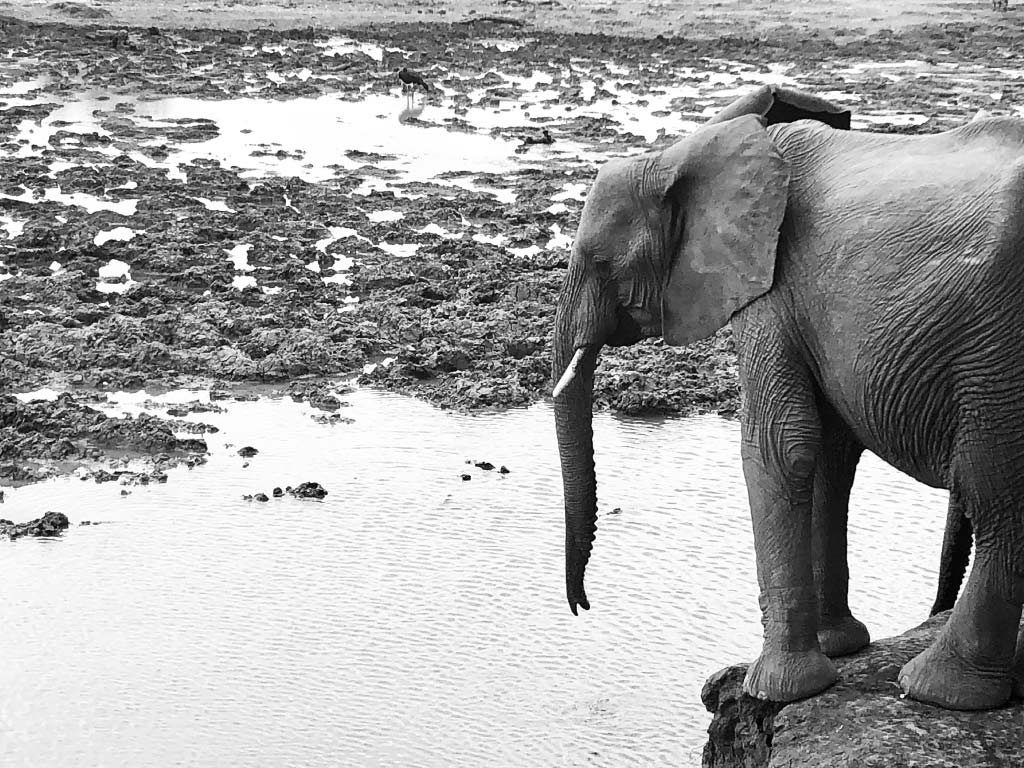
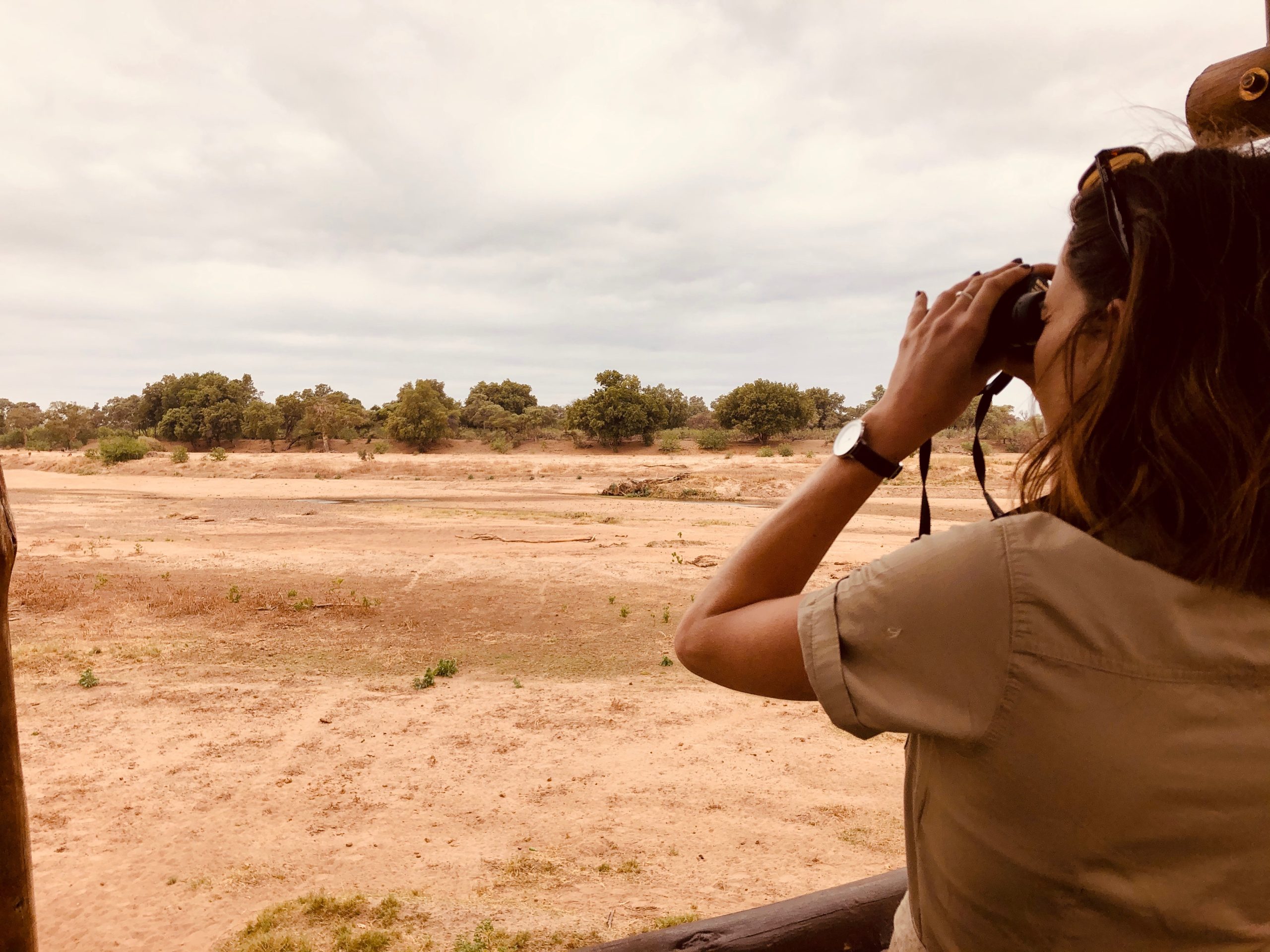
To squeeze the last bit of adventure from the weekend, we had come here before hitting the road – to the deserted bird hide with seemingly nothing to offer. As my mind still peacefully wanders over the surprising gems we had uncovered over the last two days, Simoné grabs my arm excitedly, my fright startling both of us. From across the dry pan, a huge breeding herd of elephants appear. They enter the arena quickly and soundlessly. At first they seem determined to pass the hide, but the matriarch is clearly on a mission for water, and they turn to what is left of the waterhole right in front of the hide. Our excitement is palpable as the herd silently passes, one by one, within touching distance of us. As each Ellie finds a spot to slake their thirst, we can clearly see every dust-filled wrinkle, hear every grumbly conversation, smell the earthy mix of dust, mud and dung. The white of their intelligent eyes show they are aware of us, but declared us friends. But as quickly as they arrived and finished their sloshy drinks break, as quickly the herd disappears again. On to the feeding grounds closer to the river.
We are left with a sense of exhilaration. They say good things come to those who wait, and better things to those that are patient – it seems more so in a lonely hide in the bush. This special herd showed us again that if you slow down, relax, be patient, and take in the small blessings, you will always in some way be rewarded. As we turn South with the baobab-studded road to Pontddrift disappearing behind us, we know we will be back soon.
